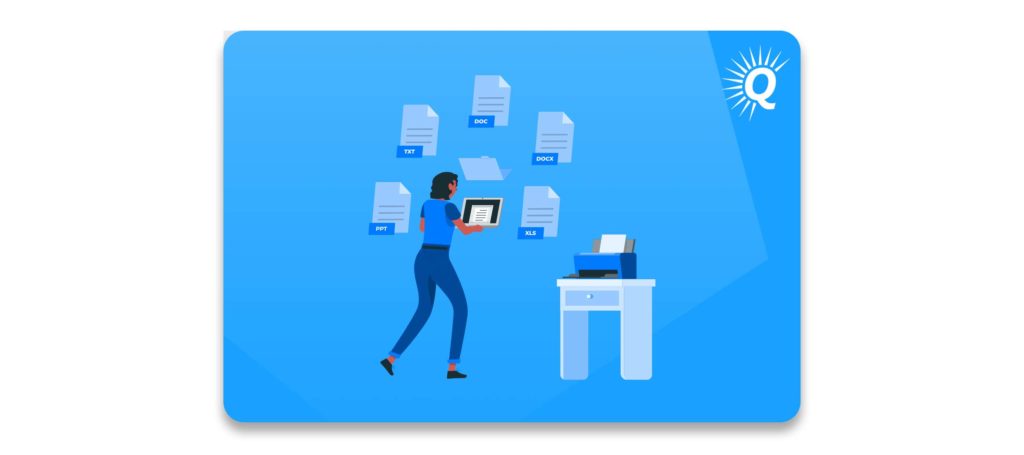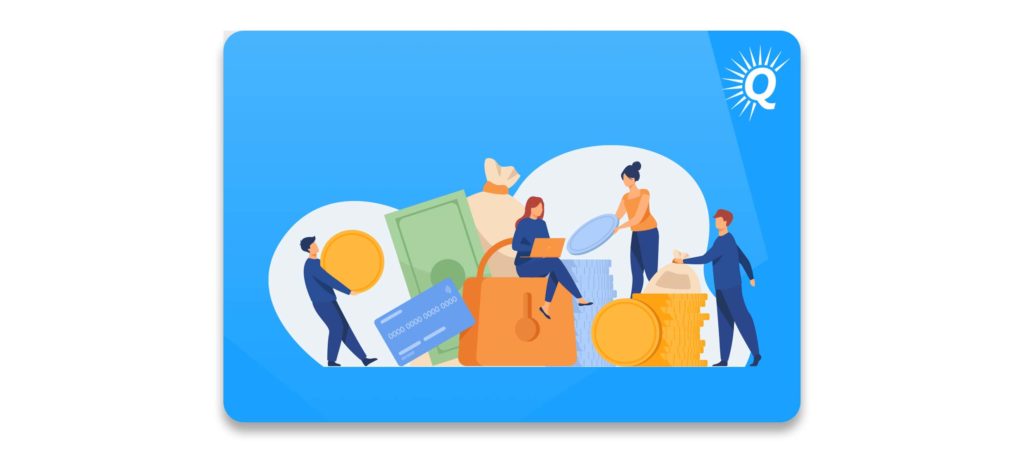Topics:
Never Miss a Beat - Get Updates Direct to Your Inbox
FILTER:


Seven Types of Business Acquisition Loans
By Ian Drogin
Business acquisition loans can dramatically increase your buying power while helping you realize a higher ROI. However, with several different loans available, how do you know which financing option represents the best path to funding your next purchase?
In this article, we discuss seven different types of acquisition loans that can help you acquire the right online business. By understanding how each of them works, you’ll be in a great place to make informed decisions that lead you one step closer to succeeding as an acquisition entrepreneur. But first, let’s start with the basics.


What Is a Business Acquisition Loan?
As the term implies, a business acquisition loan is a loan that is intended to fund the purchase of an existing business. This could be anything from borrowing money from a family member to the highly standardized SBA loan that has become well known among business buyers.
One of the key elements of a loan is that it generally does not entitle the lender to become a part-owner of the business. This means that you, the buyer, get to retain full ownership of the business you acquire. In return for borrowing acquisition capital, you’ll make monthly payments with interest until the full loan amount has been paid.
Similar to accounts receivable financing, lenders of acquisition loans provide capital based on the assessment that the business will generate enough income to repay the loan. Therefore, lenders generally have a strict vetting process that considers the business’s financial performance, the acquisition deal terms, the buyer’s creditworthiness, and other factors.
Buy a Profitable Online Business
Outsmart the startup game and check out our listings. You can request a summary on any business without any further obligation.
Seven Types of Business Acquisition Loans
There are many different types of business acquisition loans you can use to finance a purchase. Below, we’ve included a list of seven options that many entrepreneurs consider when looking to buy a business:
- Conventional loans
- Business line of credit
- Revenue-based loans
- Start-up loans
- SBA loans
- Friends and family
- Seller financing
Conventional Loans
Conventional loans are generally offered by a bank or other established lender. They’re often difficult to qualify for but offer some of the best interest rates and terms you can find. To get a conventional loan, you should expect to undergo a rigorous application process that takes into account the business’s financial performance as well as your own personal experience and credit approval.


Business Line of Credit
Although business lines of credit aren’t specifically intended to acquire businesses, they can be used for that purpose. Generally, approval is based on your own credit score and income. And of course, you need to already be a small business owner.
Once you’re approved for a business line of credit, you can borrow any amount up to your credit limit during your draw period. Then, you only pay interest on the amount you borrow. After your draw period ends, you can often convert your balance into a standard bank loan with fixed repayments.
Revenue-Based Loans
Revenue-based loans offer an interesting alternative to conventional loans and can make sense for buyers in some cases. Instead of repaying your acquisition loan on a fixed schedule, you make repayments based on a percentage of revenue. This means your loan payments can fluctuate with your revenue trends.
While this option provides a certain level of security for borrowers (if your revenue drops so do your loan repayments), it also creates added risk for lenders. Therefore, you probably won’t receive the best rate on a revenue-based loan.
Start-Up Loans
Not surprisingly, a startup loan is intended to provide acquisition funding for younger companies that have been in business less than two years. While they’re often used by founders who need additional capital, they can also be used to acquire existing businesses that meet the requirements.


SBA Loans
One of the most common sources of business financing is Small Business Administration (SBA) loans. Any serious acquisition entrepreneur seeking business acquisition financing should strongly consider this option.
The SBA will lend up to 90 percent of the total purchase price when you acquire a business. This means that you, the buyer, can put down as little as 10 percent. Needless to say, this can dramatically increase your buying power and open up otherwise inaccessible opportunities.
Although SBA loans have significant advantages, they also have strict requirements. Our previous article about SBA loans goes into much more detail about the application and approval process. Like most business acquisition loans, they tend to slow down the buying process and can deter some sellers from working with you.
Friends and Family
Some buyers choose to skip the bureaucratic hurdles of traditional lending and ask friends or family for an acquisition loan. Of course, you need to have the right relationships for this to be a viable option, but in many cases, it can open up great opportunities.
There’s no set road map when it comes to borrowing money from friends or family. Often, the requests of your familiar lender will dictate the requirements you need to meet. In some cases, it’s as straightforward as telling your uncle your business plan and making a handshake agreement.
It’s important to consider how lending money from family members might affect the relationship. Again, there’s no standard process here. In some cases, it may be a casual conversation with little-to-no impact. In others, it could lead to a strained relationship in which Uncle John is constantly asking you when you’ll be able to pay off the business acquisition funding source. As in all business deals, it’s important to communicate openly and honestly if you choose to go this route.


Seller Financing
Seller financing is an acquisition financing arrangement in which the seller lends you part of the purchase price. Then, you make monthly payments based on an agreed-upon payment schedule and interest rate.
Seller financing can be a great option for buyers. The main issue is that most sellers are reluctant to agree to such terms unless they’re working with limited bargaining power. Therefore, you shouldn’t expect to get seller financing terms unless you’re acquiring a distressed business.
The Pros and Cons of Using a Business Acquisition Loan
Before moving forward, it’s important to consider both the pros and cons of using a business acquisition loan. Although there are some excellent benefits to going this route, there are also potential drawbacks.
Pros of Using a Business Acquisition Loan
Some of the primary advantages of using a business acquisition loan include:
- Increasing your leverage
- Generating a higher ROI
- Preserving your capital
- Making more competitive offers
- Retaining your equity


Increasing Your Leverage
When you use an acquisition loan, you gain immediate leverage to fund your purchase. Instead of needing to invest 100 percent of the purchase price in cash, you can instead invest a significantly smaller portion. This allows you to acquire a much more valuable business than you could otherwise afford.
For example, let’s say you have $200,000 to invest in a business. If you’re not using a small business loan, then it’s pretty clear you can only afford a business worth $200,000. Such a business might generate roughly $70,000 per year, assuming the multiple is slightly less than 3x.
Now, let’s say you use an SBA loan to acquire a business with just 10 percent down. In this scenario, you can use your $200,000 to acquire a $2M business. Fortunately, that’s not an unrealistic scenario if you’re a qualified buyer acquiring a healthy, established business.
Thinking of Selling Your Business?
Get a free, individually-tailored valuation and business-readiness assessment. Sell when you're ready. Not a minute before.
Generating a Higher ROI
Using a loan to buy a business also allows you to generate a higher ROI. Let’s return to the example above.
In the first scenario, you invested $200,000 to acquire an asset that generates $70,000 per year. Not bad! However, let’s say the $2M business generates 10x that amount, or $700,000 per year. Of course, in the second scenario, you would need to subtract the cost of interest and loan repayments, but you’d clearly realize a much higher ROI.


Preserving Your Capital
Another key benefit of using a loan is preserving your capital. If you have limited financial resources, a loan allows you to invest less capital in the acquisition, thereby increasing your capital reserves.
Preserving your capital during the acquisition process can be essential if you need to invest heavily in growth activities. For example, using a loan can often allow you to allocate more money for advertising, hiring key staff, launching more products, or managing inventory effectively. And it can leave more money in your personal bank account too.
Making More-Competitive Offers
Because acquisition loans give you more purchasing power, they allow you to make more competitive offers. In turn, this allows you to have a better chance of winning the deal if you’re competing against other buyers.
Retaining Your Equity
In many cases, the alternative to using a loan is to give up equity to an investor. Sometimes, it might make sense to bring on an investor partner, especially if they have the skills and resources to bring significant value to the business.
In other cases, however, you may want to avoid giving up equity. When you acquire a business with a loan, you still maintain full ownership of the business.


Cons of Using a Business Acquisition Loan
There are many benefits of using a business acquisition loan, but there are also some considerable drawbacks. These include:
- Loans generally slow down the acquisition process
- Interest payments can add up over time
- There’s risk involved in using other people’s money
Loans Can Slow Down the Acquisition Process
Most banks and lending institutions have highly standardized practices for processing and approving loans. Not surprisingly, this adds several additional steps to the deal and can dramatically slow down the process.
A slower deal process may not sound too bad, but it can sometimes make sellers wary. If a seller is faced with a cash deal and an SBA deal (often an SBA 7a loan), they’ll likely choose the cash deal if the purchase prices are the same or similar. Therefore, if you’re using SBA financing you might need to make a slightly higher offer to win the deal. Of course, every situation is different, but it’s definitely something to keep in mind when working with sellers.


Interest Payments Can Add Up Over Time
If you’ve ever paid close attention to the math involved in large loans, you know that interest payments can really add up. It’s possible you could end up spending tens or even hundreds of thousands of dollars in additional interest expenses over the course of the loan terms.
While no one likes paying interest, it’s important to remember that your business is (hopefully) an appreciating asset that generates cash flow. In other words, using a loan to buy a business is a lot different than using one to purchase a car or boat. If your acquisition is successful, the money you earn from the business should far outweigh the amount you spend in debt payments.
Loans Involve Some Degree of Risk
All loans involve some degree of risk, although the same is true for all business acquisitions. When you take a loan, you’re legally committed to repaying the debt. If things go downhill in your business, that could create a very challenging situation. But then again, investing your own money also involves risk. Therefore, the best defense against such risk is making a smart acquisition decision and implementing effective strategies to succeed after the purchase.
Regardless of which path you choose, understanding the various kinds of acquisition loans and their pros and cons can only help you make the right decision for your next purchase.
Outsmart the startup game and check out our listings. You can request a summary on any business without any further obligation.Buy a Profitable Online Business





